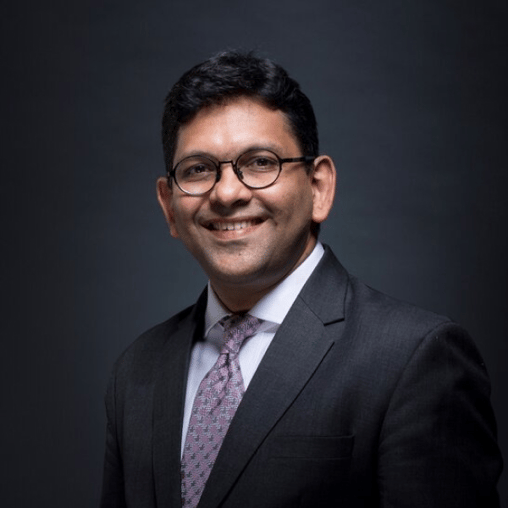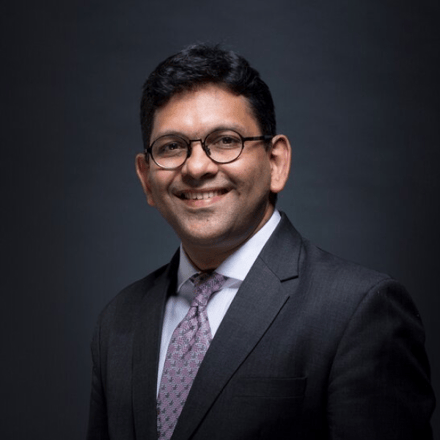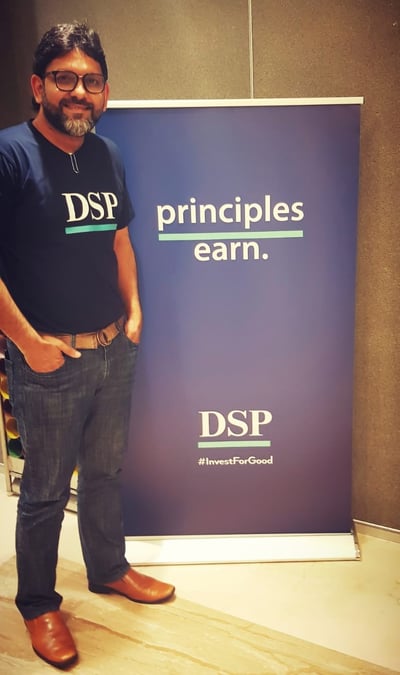Kalpen Parekh: from chemical reactions to financial alchemy
Many of us have a friend or relative whose career switches are the talk of every family gathering: the architect who became a sound recording engineer or the French teacher who started a cloud kitchen. But it’s not all that common to see such interesting transitions in the somewhat staid world of investing and finance.
And that’s exactly what makes Kalpen Parekh an outlier: his current role as MD & CEO of DSP Mutual Fund is the culmination of a long career that began in a rather unexpected place. Today, Mr. Parekh heads a fund that manages assets worth more than 1 lakh crore, but he originally worked as a chemical engineer before making his way to the top echelons of the world of asset management.


Beginnings and inspirations
Back in the early 90s, when it was time for Mr. Parekh to pick a subject to graduate in, he opted for a branch of engineering that wasn’t exactly high on the popularity ratings: chemical engineering. This was because his father, who was in the shipping business, had astutely forecast that the chemical industry would likely do well in the near future based on the volume of chemicals being shipped worldwide.
Mr. Parekh then started his career working in various chemical factories, dealing with boilers, filtration systems, and the like. However, it was soon clear to him that this sort of work was not very exciting, and he decided to pivot to management by signing up for an MBA, which eventually led him to asset management.
The rest, as they say, is history, but Mr. Parekh is well aware of how fortunate he has been to have been in the right place at the right time and to have always been surrounded by talented people and inspiring leaders. They imparted to Mr. Parekh many of the most important lessons that have guided him over his career, including the art of business-building, the power of simplicity, the use of creativity in tackling business challenges, and the indispensability of values and integrity.
The question that became a major turning point
One of the key experiences early on in Mr. Parekh’s asset management career that had a huge impact on how he approached fund management subsequently came around 2000-2001. A seasoned investor, who was also one of Mr. Parekh’s biggest early investors, had seen his portfolio grow extremely well over the previous few years, and asked Mr. Parekh an interesting question: in his opinion, were these returns coming from him or the market?
While this question might seem rather innocuous on the face of it, it forced Mr. Parekh to question his assumptions, dig deeper into the factors behind such returns, and have a more nuanced understanding of the “extra” returns generated by money managers. More fundamentally, however, it drove home the point that asking the right questions and thinking independently were among the cornerstones of being a good asset manager, and Mr. Parekh has never lost sight of this fact since.


Learnings and advice for rookie investors
As you might imagine, Mr. Parekh has amassed a wealth of wisdom over his 22-year career. Probably the most important lesson he has learned is that fund managers need to be a humble and responsible lot, given the stakes and given that there are lakhs of households that are relying on them for building wealth.
In addition, he believes that brief and direct communication works best, and that aiming for simplicity and minimalism has helped him focus on what truly matters.
His advice for rookie investors is simple: maintain an abundance mindset instead of a scarcity mindset, don’t underestimate the power of positivity, always be on the lookout for the little nuggets of wisdom that might lurk underneath every interaction, and stay put with your investments when you’re tempted to pull out.
(Based on an interview originally published on ETMarkets.com in January 2023)
Disclaimer
This note is for information purposes only. In this material DSP Asset Managers Pvt Ltd (the AMC) has used information that is publicly available and is believed to be from reliable sources. While utmost care has been exercised, the author or the AMC does not warrant the completeness or accuracy of the information and disclaims all liabilities, losses and damages arising out of the use of this information. Readers, before acting on any information herein should make their own investigation & seek appropriate professional advice. Any sector(s)/ stock(s)/ issuer(s) mentioned do not constitute any recommendation and the AMC may or may not have any future position in these. All opinions/ figures/ charts/ graphs are as on date of publishing (or as at mentioned date) and are subject to change without notice. Any logos used may be trademarks™ or registered® trademarks of their respective holders, our usage does not imply any affiliation with or endorsement by them.
.jpg)






Leave a comment